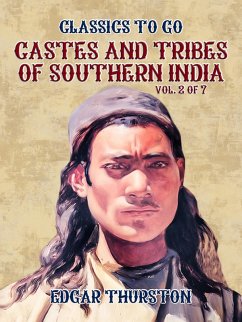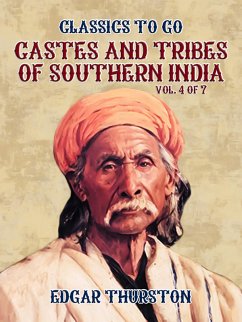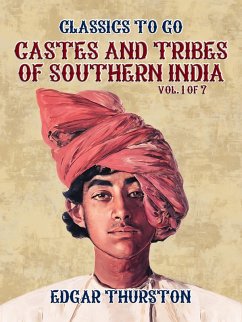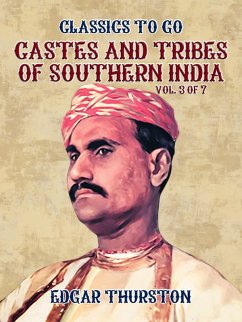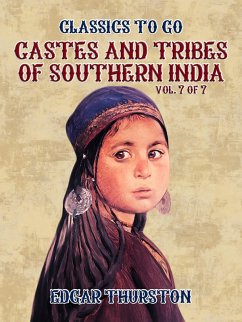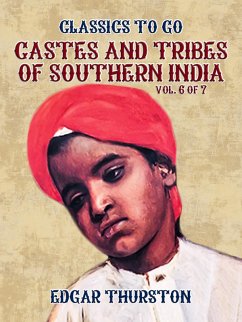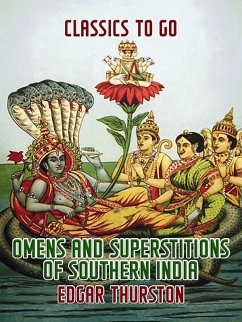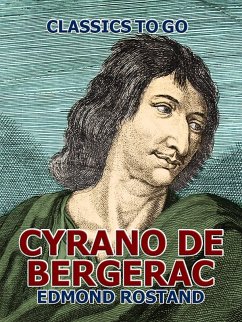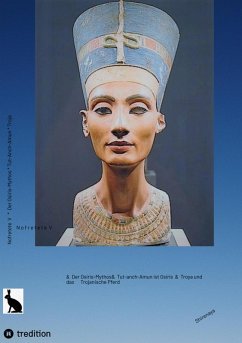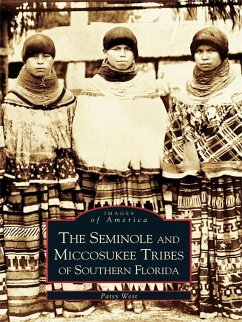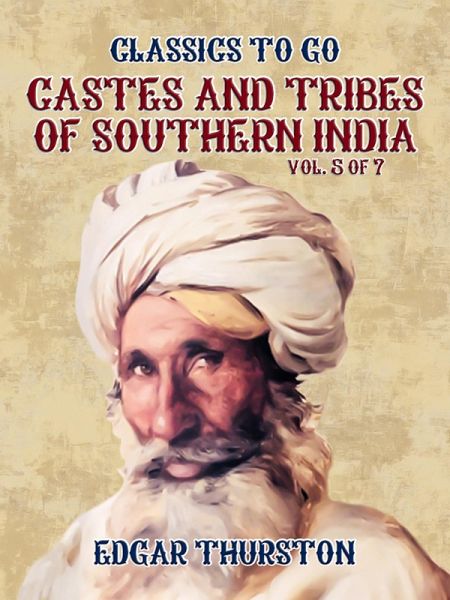
Castes and Tribes of Southern India. Vol. 5 of 7 (eBook, ePUB)

PAYBACK Punkte
1 °P sammeln!
Excerpt: "The Marakkayars are described, in the Madras Census Report, 1901, as "a Tamil-speaking Musalman tribe of mixed Hindu and Musalman origin, the people of which are usually traders. They seem to be distinct from the Labbais (q.v.) in several respects, but the statistics of the two have apparently been confused, as the numbers of the Marakkayars are smaller than they should be." Concerning the Marakkayars of the South Arcot district, Mr. Francis writes as follows.1 "The Marakkayars are largely big traders with other countries such as Ceylon and the Straits Settlements, and own most of th...
Excerpt: "The Marakkayars are described, in the Madras Census Report, 1901, as "a Tamil-speaking Musalman tribe of mixed Hindu and Musalman origin, the people of which are usually traders. They seem to be distinct from the Labbais (q.v.) in several respects, but the statistics of the two have apparently been confused, as the numbers of the Marakkayars are smaller than they should be." Concerning the Marakkayars of the South Arcot district, Mr. Francis writes as follows.1 "The Marakkayars are largely big traders with other countries such as Ceylon and the Straits Settlements, and own most of the native coasting craft. They are particularly numerous in Porto Novo. The word Marakkayar is usually derived from the Arabic markab, a boat. The story goes that, when the first immigrants of this class (who, like the Labbais, were driven from their own country by persecutions) landed on the Indian shore, they were naturally asked who they were, and whence they came. In answer they pointed to their boats, and pronounced the word markab, and they became in consequence known to the Hindus as Marakkayars, or [2]the people of markab. The Musalmans of pure descent hold themselves to be socially superior to the Marakkaayars, and the Marakkayars consider themselves better than the Labbais. There is, of course, no religious bar to intermarriages between these different sub-divisions, but such unions are rare, and are usually only brought about by the offer of strong financial inducements to the socially superior party. Generally speaking, the pure-bred Musalmans differ from those of mixed descent by dressing themselves and their women in the strict Musalman fashion, and by speaking Hindustani at home among themselves."
Dieser Download kann aus rechtlichen Gründen nur mit Rechnungsadresse in A, B, BG, CY, CZ, D, DK, EW, E, FIN, F, GR, HR, H, IRL, I, LT, L, LR, M, NL, PL, P, R, S, SLO, SK ausgeliefert werden.




